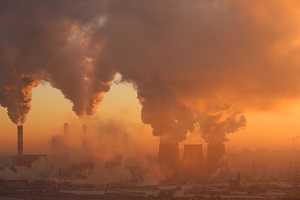
People around the world are breathing dirty air, making it the fifth leading risk factor for mortality globally. Air pollution is a complex issue in all countries, as it requires cooperation, innovation, good governance, behavioural change, public demand, and strong technical capacity across administrative levels and across country borders.
To build a regional community of air quality experts and strengthen inter-governmental cooperation on air quality management in Central Asia, the US Environmental Protection Agency, the US Embassy in Nur-Sultan, and the UNECE secretariat to the Convention on Long-range Transboundary Air Pollution (Air Convention) co-convened a virtual workshop over two weeks (10-20 August 2020). With 40 years of experience to tackle air pollution on a broad regional basis, the Convention has successfully brought together 51 countries in Europe and North America to cooperate on reducing air pollution, achieving significant results, including the prevention of 600,000 premature deaths annually in Europe.
The workshop provided a platform to share information on resources available to further air quality management goals in the countries and cities of Central Asia, to learn about key challenges and institutional capacities for air quality management from representatives of different Ministries, to provide an overview of selected topics in air quality management, and to facilitate discussion with participants to identify major sources of air pollution and exposed populations, as well as potential regulatory, technical, and financial capacity needs to improve air quality. The secretariat also shared the lessons learnt from the Air Convention as the most successful example of intergovernmental air quality governance in the region.
The workshop was attended by over 40 participants from Central Asian countries. Participants actively participated in the discussions revolving around different sources of emissions and best abatement options to reduce air pollution.
For more information on capacity-building under the UNECE Air Convention, please visit: http://www.unece.org/environmental-policy/conventions/envlrtapwelcome/capacity-building.html.

